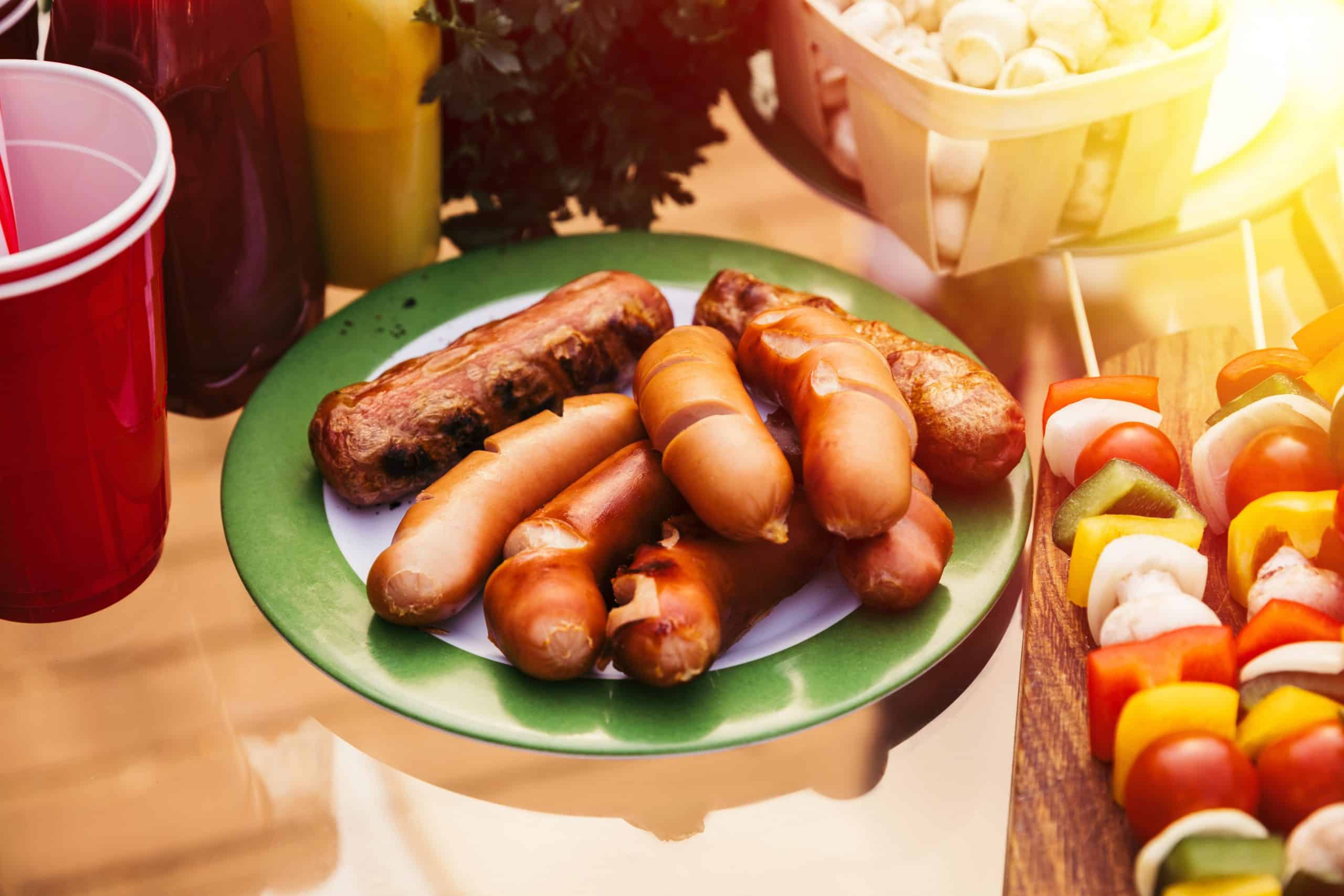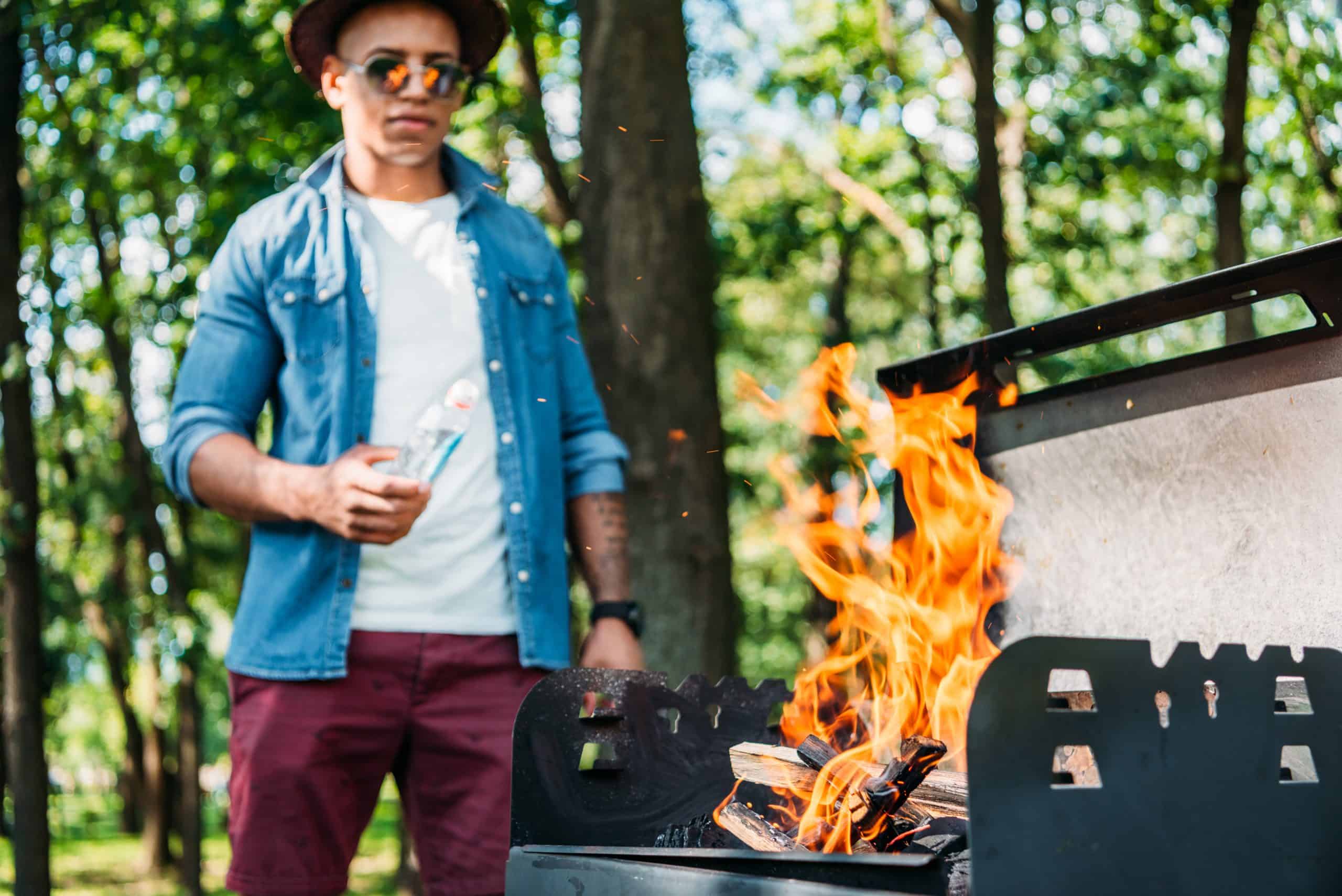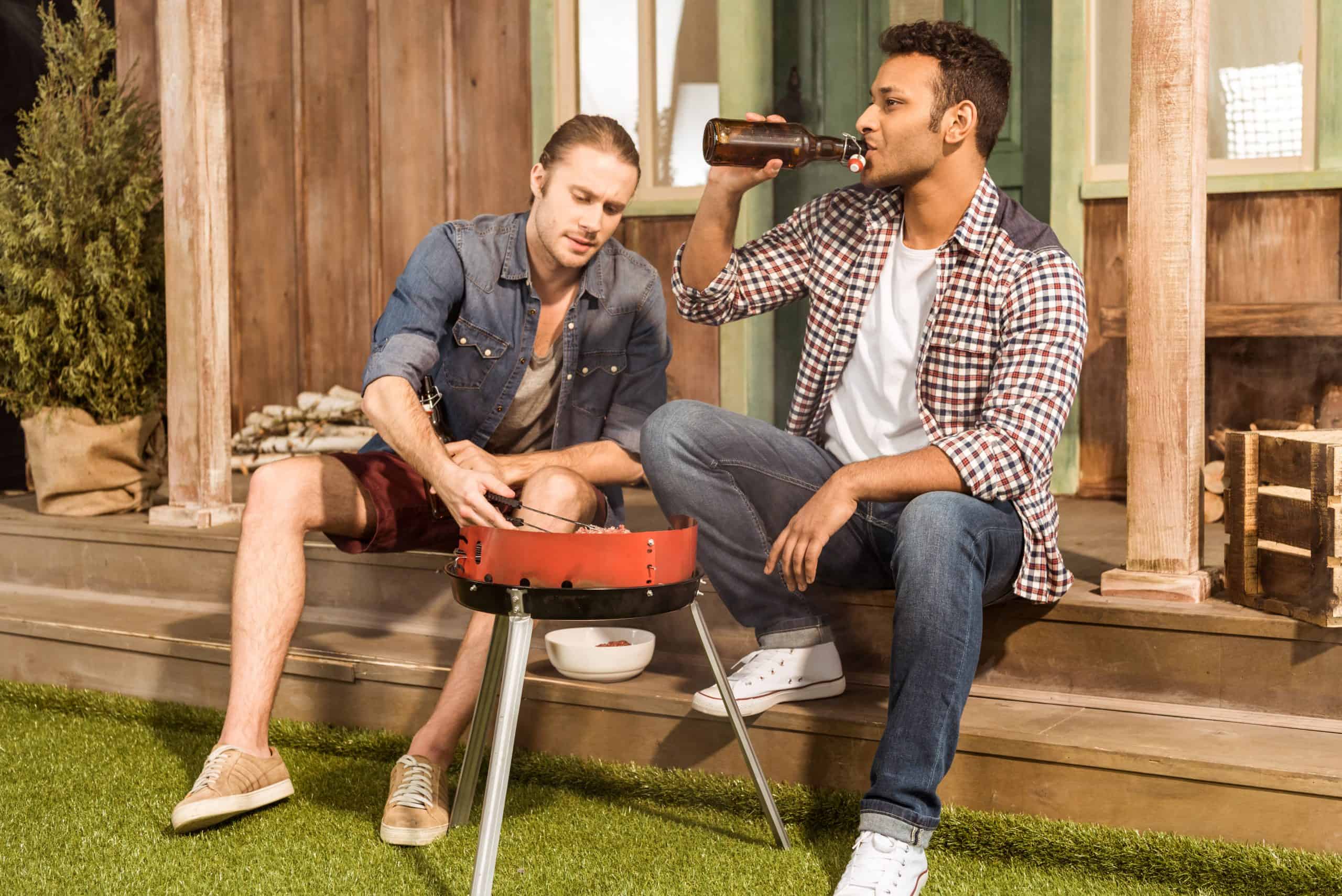The last thing you want to end up with after a barbecue is food poisoning or third-degree burns. According to the National Fire Protection Association (NFPA), grills and barbecues were responsible for more than 10,000 fires annually in people’s homes, leading to 10 deaths, 160 injuries and nearly $150 million in property damage each year. The Centers for Disease Control and Prevention adds that 48 million Americans get sick from foodborne diseases annually.
Don’t let your fun cookout, campout or picnic turn you into a statistic! Follow these food preparation and grilling safety tips to learn how to barbecue safely this summer.

Photo: Deposit Photos
Food safety for barbecues
Raw meat handled incorrectly puts you and your barbecue guests at risk for food poisoning. Follow these food safety tips to keep everyone healthy.
Wash your hands. Let’s start with the obvious. Before you start grilling, wash your hands with soap and water for at least 20 seconds. This is especially important if you’re camping and are dirty from setting up a tent or hiking in the woods, but it’s important anytime you start to cook anything. In addition, you should re-wash your hands after touching raw meat.
Don’t mix raw and cooked meat. Most people know not to put raw chicken side by side on a plate with cooked barbecue wings. It’s the most subtle mixing that gets you. Don’t use the same tongs or fork to touch both raw and cooked meat. Don’t lift a dripping raw steak over a plate of already cooked meat. Keep the raw meat and everything they touch away from the cooked meat and everything it touches to avoid cross-contamination.
Keep food cool before cooking. Don’t leave all the meat and vegetables sitting out in the sun while you slowly grill it in batches. Bring a small plate out to the barbecue and leave the rest in the fridge until you’re ready to put it on the grill. If you’re camping, make sure you have enough ice in a cooler to keep any raw meat cold until you’re ready to cook it.
Don’t use marinade as extra sauce. You flavor your steak and chicken in a fabulous marinade that doubles as a sauce to pour-over the cooked meat. Don’t set out the marinade that touched the raw meat for people to spoon onto their plates. That’s how you get sick. Instead, split your batches of sauce and use one for the raw meat and one as a condiment.
Don’t put meat on a cold grill. You don’t want your sausages sitting on a cool grill, waiting for it to heat up and cook the meat. Bacteria will grow if the meat is neither kept chilled or cooking. Instead, wait for your barbecue to heat up before you lay on the food.

Photo: Deposit Photos
Cook food to the correct temperature. Eating undercooked meat, especially chicken, is dangerous. Don’t spoil your party with salmonella. Chicken is done when its internal temperature reaches 165 degrees Fahrenheit. Beef should cook to at least 125 (for rare steaks and burgers); 140 is considered medium well.
Put food out in batches. Don’t put giant bowls of potato salad and meatballs on your outdoor buffet table. The food will sit out at unsafe temperatures and go bad. Better to bring out small bowls and refill them frequently.
Don’t leave food unattended. Especially if you’re camping, never turn your back on the food you set out on a picnic table. We once had raccoons break into our s’mores fixings because we left them out while we grilled marshmallows at the campfire. If you don’t want squirrels in your pasta salad or birds in your burgers, assign someone to keep watch by the table and pack up any food you’re not using.
Throw away leftovers. We frugal folk love leftovers. However, if yours have sat out in the sun for hours, you do not want to eat them the next day or repurpose them into new dishes. It will hurt your heart to throw away what looks like perfectly good food, but you don’t want to find yourself in the emergency room the next day with food poisoning, either.
Barbecue safety when grilling

Photo: Deposit Photos
You never want to be careless around fire and following grilling safety protocols is the best way to keep everyone safe during your fun family barbecue. Some of these tips should be obvious, but a refresher never hurts.
Keep grill away from structures and overhangs. Set up your grill in an open area, away from your house or other structures. Stay away from low-hanging tree branches, and don’t barbecue on the balcony of your apartment. Should you have a flame flare up, you don’t want there to be anything nearby it could set on fire.
Remove loose clothing. You also do not want to accidentally catch fire while grilling. Remove loose clothing, such as flapping sleeves or dangling jewelry, and pull long hair into a ponytail or baseball cap. If your hat is easily blown off by wind, find a tighter-fitting hat or one with a chin strap, so it doesn’t end up in the barbecue.
Make sure your grill is stable. The last thing you want to do is knock over your grill, spilling hot coals, flames and your barbecue lunch on your patio or lawn. Set it up on a flat surface and make sure it’s stable before you turn on the gas or light the coals.
Check for gas leaks. If your grill runs on propane, do not light it if you suspect a gas leak. Listen for the hiss of gas escaping and take a few sniffs to make sure you don’t smell gas. Do not use your grill if you suspect a leak because the excess gas can combust if it comes in contact with a spark.
Don’t pour lighter fluid on hot coals. Families using a charcoal grill should only pour lighter fluid on cold coals. If the coals are already burning, lighter fluid can cause a dangerous flare up. Also, in case this needs to be said, only use approved lighter fluids or fire-starting methods like charcoal chimneys to start your charcoal grill. Never use gasoline.

Photo: Deposit Photos
Don’t drink and grill. Nothing goes better with a grilled burger on a hot day than an ice cold beer. But the more beers you’ve had, the more likely you are to forget all the barbecue and food safety tips you know. For everyone’s safety, save the booze for after the grilling is finished.
Keep kids away. Kids get involved in their backyard games, and don’t think about a hot barbecue when they’re catching a frisbee or chasing a friend. Keep their play space far away from the grill area, so they don’t accidentally crash into the barbecue, knocking it over or getting burned. If family and friends are playing ball, remove them to another side of the house so nothing comes flying into your grilling area.
Place a fire extinguisher in arm’s reach. Should anything catch fire, you want to put it out as quickly as possible. Have a fire extinguisher nearby, so you don’t have to go running into the house to search for one, letting the fire burn while you waste precious minutes. If you’re camping, keep full bottles of water near your campfire to douse any sparks.
Put out your fire completely. Once the grilling is done and the burgers, dogs and steaks gobbled up, your responsibility is not finished. Check your grill or campfire to make sure it’s completely out. For a campfire, that means turning the embers with a stick and pouring more water on any remaining sparks. For a charcoal grill, put on the lids and close the vents, then dispose of the coals appropriately when they’re cool.
If you liked this article, you might also like:
